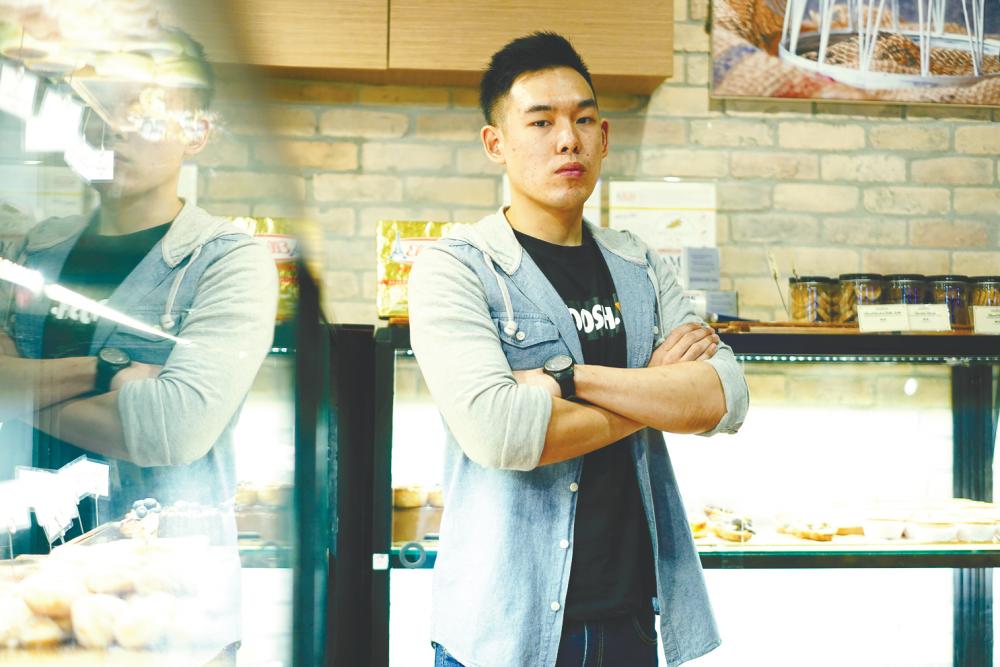COOKING was his first love, but Shawn Lee experienced real passion when he began baking in college.
Bread is something we don’t tend to think about. Sliced sandwich bread and pre-packed stuffed buns are ubiquitous sights at convenience stores, but we rarely give them much thought.
Neither did Shawn. He never thought he would ever become a baker either. But college changed that, and since then, his passion for the humble bread has grown.
Why did you become a baker?
“I bake by choice. I enjoyed cooking when I was in college. My goal was to become a chef. But, I realised something when I was a student: I noticed that in baking, you use your bare hands.
“I realised that I liked working with my hands, and this started me on the path to becoming a baker.
“I find a lot of enjoyment in baking. It’s like developing something from a baby to a fully-baked bread. I take pride in seeing people happily eating the bread that I’ve made.”
Why didn’t you train to become a pastry chef?
“I like to bake bread, specifically. I feel that with pastry, you will have to deal with a lot of messy, watery and sticky ingredients, the stuff that make pastries into desserts. I didn’t like it.
“I used to experiment a lot more before I started to work. In the kitchen, I follow the guidelines and recipes of the company I work for. But at home, I still experiment and try new things.”
How do you get inspired?
“It usually begins with a trip to the grocery shop. An ingredient would catch my eye, and I’ll get inspired – stuff like fruits or imported ingredients, and rare ingredients, like fish roe.
“Yes, I do bake bread with fish roe in it!
“Inspiration also comes from my wanderings around cafes and shops, locally and abroad.
“I like to see what are the trends, and what they have to offer. I even get ideas from colleagues who travel overseas or from something I read in a magazine.”
Which country has the most exciting bread?
“Japan tends to have the most interesting bread creations. They have an artisan spirit and a strong spirit in their breadmaking.
“They pay attention to every single detail when they bake, like the temperature of the ingredients and baking time. Very detailed.”
Is baking bread difficult?
“It is not simple; in fact, it can be difficult. For example, almost every cafe and bakery sell croissants, but not all croissants are the same.
“Some shops and cafes mass-produce their baked goods, while others pay attention to details, like the number of layers, the type of butter used.
The good ones have the desired outcome from the start.
“It’s the same with baguette. The taste, the texture, the colour, even the cuts made on the dough to give the bread that signature look – every bakery has its way [of doing it], but not all are great.
“The ingredients of the baguette are deceptively simple: water, flour, salt and yeast – only these four. It is your skills and techniques that make the bread.
“Another bread that looks simple but deceptively difficult to make is anpan, the red bean bun. Making one will test your knowledge of the basics of baking bread.”
What, in your opinion, is the Malaysian attitude towards bread?
“To most Malaysians, bread is just a food, something to be had for breakfast or as a snack. They do not have a [fixed] opinion of how a specific bread should be.
“But a few [do] look at the presentation of the bread, how it tastes like, and they do know the difference.
“The right ingredients will influence the quality of the bread. The different kinds of butter and flour can result in different flavours and leaven different types of bread.
“For me, the yeast can make a difference too – but an essential component of making bread, the element that gives it the most flavour, is the levain or bread starter.”
Will you open your own bakery someday?
“Opening my own bakery is in my plans, but the economy is not very conducive right now.
“Everything is expensive, and the price of ingredients keeps on increasing. Even local ingredients are not as affordable. It is a tight market.
“That said, I would definitely further my career in Malaysia. The market is not fully developed, and there is still room to grow.”













